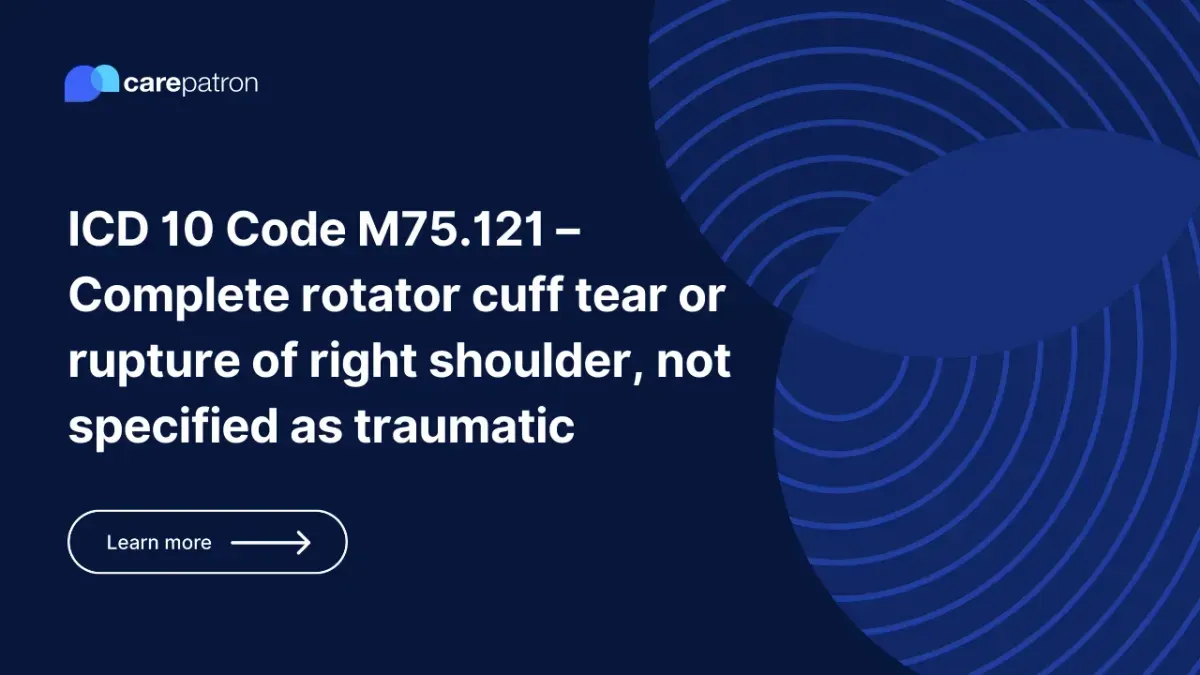
M75.121 – Complete rotator cuff tear or rupture of right shoulder, not specified as traumatic
Understand the ICD-10-CM code M75.121, indicating a complete non-traumatic tear of the right shoulder's rotator cuff, its clinical implications, and more.
Use Code
Commonly asked questions
The symptoms typically include severe shoulder pain, difficulty lifting objects, and a cracking sensation when moving the shoulder.
Treatment options can vary from non-surgical interventions like physical therapy and steroid injections to surgical intervention, depending on the severity of the tear.
A traumatic rotator cuff tear occurs due to an injury or accident, whereas a non-traumatic tear is typically due to age-related wear and tear or degeneration.
EHR and practice management software
Get started for free
*No credit card required
Free
$0/usd
Unlimited clients
Telehealth
1GB of storage
Client portal text
Automated billing and online payments
